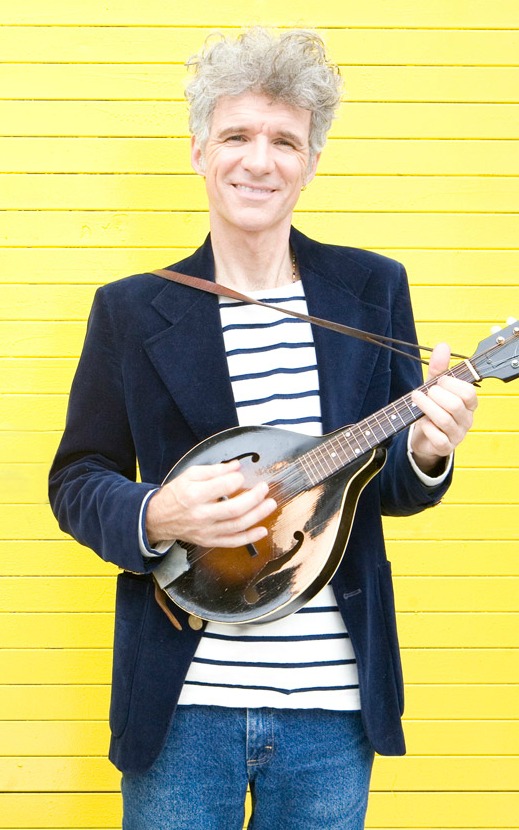We all want to do better, and be better. Part of being a Mash-Up American is participating in challenging conversations about race and culture with curiosity and kindness. But in a complex, racially charged society, sometimes it’s hard to know how to become a more engaged and fully present person — not to mention ally — without inadvertently offending someone, or doing real harm. This is especially true for a white guy. Dan Zanes, a Grammy-Award-winning musician, regular dude and work-in-progress [Editor’s note: His words! We think he’s magical], gives us his top tips for how to start living a less racist life.
Read about his journey from an all-white world to a Mash-Up America here.
It doesn’t help anyone if I start chastising other white folks for doing the same things I’ve undoubtedly done at one point or another in my own life. Racism has been systematically harming people of color for millennia, and it’s been stripping white people of their humanity every step of the way. For me as a white dude, the process of becoming aware and engaged has been awkward, exciting, heartbreaking, mysterious, and ongoing. Here’s my best advice if you want to join me on the way. Welcome!

1. Smile and say hello.
I’m a big believer in positive energy. I try to smile when I catch people’s eyes on the street. I usually say hello. If someone doesn’t say hi or smile back, that’s ok. I don’t know what this has to do with anti-racist work other than expressing in a simple way that we’re here together. I see you. I see you and I’m happy to see you. It’s a blessing to be a part of the human race and each little interaction is an opportunity to share that feeling.
2. Do a headcount.
Once I got in the habit of checking who was in the room (or in the office, or on the stage, or at the board meeting, or on the movie poster, etc.), it was easy to see that white cultural dominance is real and we have more than our fair share of everything! Who’s been invited to the party and who hasn’t? It’s easy to see when I do the head count.
3. Change up your liberal media diet.
The New York Times and NPR are often called liberal media, but it’s important for me to recognize that they’re white liberal media! If I want the big picture, and some of the other views, I need to look around. One of my favorite sources is The Root. I depend on their daily e-mails to stay up on news, culture, and lifestyle from the Black perspective. TheGrio also covers this very well. Colorlines is a great place for racial justice news and analysis. Latina Lista has news and culture from the Latino communities and is available in English, which is helpful for me. Racialicious addresses the intersection of race and pop culture. And of course The Mash-Up Americans. [Editor’s note: Sign up for our weekly newsletter!] These are the tip of the news iceberg.
4. Read, read, read.
Mike, who started this whole thing for me, suggested that to start to understand white privilege I might want to read an article called “Unpacking the Invisible Backpack” by Peggy Macintosh. “Why Are All the Black Kids Sitting Together in the Cafeteria?” and “Can We Talk About Race?” by Beverly Daniel Tatum were next. Then I moved on to Tim Wise’s books, starting with “Speaking Treason Fluently.” I went online and went crazy, there’s so much! These days I’m delving deep into the writings of Joseph Barndt and highly recommend his book “Understanding and Dismantling Racism” to any white person who shows even the slightest interest in becoming anti-racist.
5. Listen, listen, listen.
Once I began to understand a little bit about the pervasive, systemic nature of racism, I was able to start to hear what people of color were saying and had been saying all along. What I needed to do was listen. Listen. And listen. Listen and learn from people who understand racism in ways I’ll never know.
What I needed to do was listen and learn from people who understand racism in ways I’ll never know.
6. Expand your cultural intake.
Once my circle of friends became more diverse, I started hearing about movies, books, TV shows, musicians, plays, and other pieces of the cultural puzzle that aren’t on the radar in the white communities. My world became undeniably fuller and richer. I remember watching Kings of Comedy one night with a friend and all I could think was, “Where the hell have I been?” It was as if I was finally landing on Planet Earth.
The cultural piece for me has also included many movies about the nature and history of systemic racism. “Race: The Power of an Illusion” and “The Color of Fear” are two of my favorites.
7. Protest.
Part of me trying to become a useful white person has included taking to the streets when the situation arises. I do as much reading and listening as possible beforehand so I really know what’s going on. I follow the lead of people of color.
8. Talk to other white people, kindly.
My friend Mike changed my life with one conversation. Sometimes my conversations with other white people haven’t been very satisfying (to say the least), but I have to remember that we’re all muddling along trying to do our best and I came to this because I was attracted to the way Mike was feeling and living. It wasn’t because he told me I was behaving like a racist fool!
9. Attend a workshop.
When I first started thinking about race and privilege, I was in kind of a lone wolf state of mind. But I couldn’t just read and be cranky around other white people who didn’t have much interest in what I was saying. It wasn’t helping anyone! I looked online and found a workshop called “Undoing Racism” held by The People’s Institute for Survival and Beyond. Anti-racist training is available in most parts of the country. There are many other organizations and individuals leading training sessions, including one called The Crossroads Antiracist Organizing and Training, which Joseph Barndt mentions frequently in his books. Crossroads is based out of Chicago and works primarily with institutions.
10. Don’t ask your Black friends to explain.
Instead, join a white affinity group. Hear me out! It seemed like a weird idea to me at first, but now it makes complete sense. I need to spend time with white people interested in examining race, power, and privilege!
Why should it be up to people of color to educate me about racism?
Why should it be up to people of color to educate me about racism (that sounds exhausting) if there are white folks around who can get me started and keep me grounded? In a white affinity group I can open up and say things that might slow down the conversation in a multiracial setting. I’ve said a lot of knuckleheaded things in my life and I’m sure there are more to come! Yet, it’s important to have a place to share whatever comes to mind if I want to keep growing. Another one of the valuable things about the white affinity group is that it helps get me get up to speed for the multiracial conversations.
I attend a monthly group in Manhattan called European Dissent. Much of the focus is on organizing and community building and the atmosphere is welcoming and supportive. There are other groups around the city, including Constructive White Conversations in Brooklyn, and a spinoff, which launched in Harlem. There are snacks! There’s no doubt in my mind that if I’m not working with other people, eventually my fear, isolation and racial superiority will be right back. Find a group in your neck of the woods.
11. Dig into your own cultural identity.
Just because we’re white, doesn’t mean we don’t have our own culture. For me, learning about my heritage has been one of the many pleasures of this process. I’m white but there’s more to it than that. My people on both sides come from England. They left there and sailed to New England about 300 years ago. I don’t know if they sang English drinking songs, but these days I do, and they can really liven up parties. I heard someone once say: “I love my people but I hate what racism’s done to us.” That makes sense to me.
12. Live with love and imagination.
My friend Akaya Windwood, of the Rockwood Leadership Institute, said these wise words to me about living an anti-racist life. When I’m in a place of love and imagination I’m so much less likely to get cranky when the world is being brutal, and we are being brutal to each other. These words guide me and help me remember that we’re all in this together. These are times of limitless possibility.
Make sure to read about Dan’s journey from an all-white world to a Mash-Up America here.

